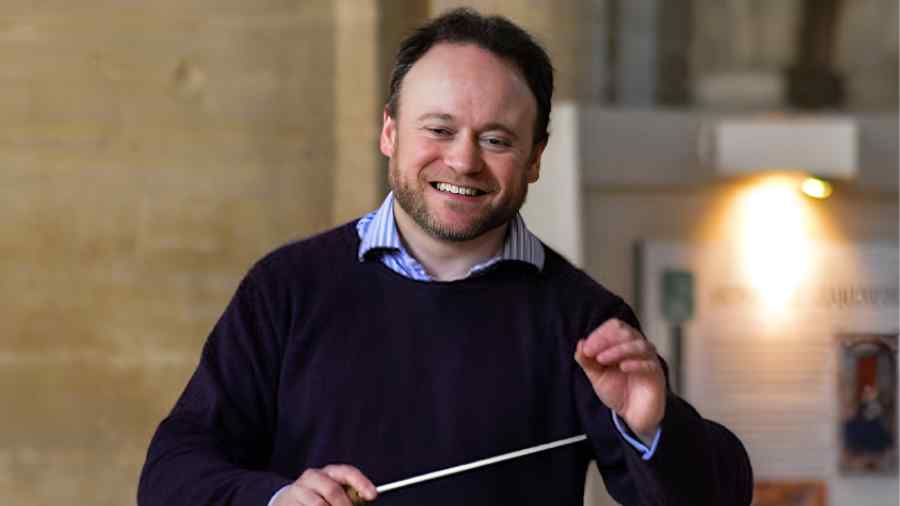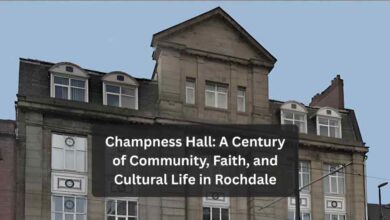Steven Grahl: A Visionary in British Choral and Organ Music

When you think of modern British choral music, few names resonate as powerfully as Steven Grahl. A consummate organist, conductor, educator and musical leader, he is shaping the soundscape of ecclesiastical and concert music in the twenty-first century. This article explores his life, achievements, musical philosophy, and the impact he continues to make in the world of choral and organ music.
Early Life and Musical Foundations
Steven Grahl was born in Crewe, and as a boy he first encountered intensive choral and liturgical music as a chorister at Derby Cathedral. His early immersion in the Anglican choral tradition laid the groundwork for his future. His formative years also included organ scholarships at Derby Cathedral and Norwich Cathedral, positions that solidified his technical command of the organ and liturgical repertoire.
These early roles provided not only musical training, but also a deep understanding of how music supports worship and liturgical life—an insight that has remained central to his career.
Academic and Professional Training
Grahl’s formal higher education combined university music with conservatoire training. He won an organ scholarship to Magdalen College, Oxford, where he completed his degree in music (in about 2001) and distinguished himself among his peers. Following Oxford, he studied at the Royal Academy of Music, earning distinction and achieving the FRCO diploma (Fellow of the Royal College of Organists).
His early appointments began while he was still quite young: in 2001 he became Assistant Organist at St Marylebone Parish Church in London, and within months he was promoted to Director of Music there—remarkable progress for someone in his early twenties. Over time he also became an Associate of the Royal Academy of Music (2010) and won numerous awards and prizes in organ performance and interpretation.
Key Appointments and Professional Trajectory
St Marylebone Parish Church, London (2001–2014)
Grahl’s first major long-term appointment was at St Marylebone Parish Church, where he served as Organist & Director of Music over more than a decade. Under his leadership, the church’s music programme flourished, establishing high standards of choral excellence and organ repertoire.
Oxford Roles: New College & Christ Church (2007–2023)
During his London years and beyond, Grahl held positions as Assistant Organist at New College, Oxford (2007–2014) while maintaining his base at Marylebone.
In 2018 he became Organist and Director of Music at Christ Church, Oxford, and concurrently served as a Tutor and Associate Professor in Oxford University’s Faculty of Music until 2023. During that time, he oversaw a considerable expansion of the music programme, including the introduction of a girls’ choir (Frideswide Voices) to broaden participation.
Peterborough Cathedral (2014–2018)
Between his London and Oxford tenures, Grahl was Director of Music at Peterborough Cathedral. His leadership there included training the cathedral choir and overseeing the re-pitching of the Hill organ—a significant technical and musical undertaking. Under his direction, the Cathedral Choir recorded EvenYouSong by Cheryl Frances-Hoad, which received critical acclaim.
Trinity College, Cambridge (From 2024)
In August 2023 it was announced that Steven Grahl would succeed Stephen Layton as Director of Music at Trinity College, Cambridge, beginning from January 2024. This appointment is regarded as a significant moment in his career: he joins a long tradition of distinguished musical leadership at Cambridge, and has expressed aims to sustain and grow the Choir’s reputation and impact.
Leadership of Schola Cantorum of Oxford
Since 2017, Grahl has served as Conductor of Schola Cantorum of Oxford, a renowned collegiate chamber choir. In this role, he oversees rehearsals, shapes programming, mentors younger singers (including conducting scholars) and guides the artistic direction of the ensemble. The choir has a storied history, with past conductors including luminaries such as Andrew Parrott, Nicholas Cleobury, Ivor Bolton, Jeremy Summerly and James Burton. Under his baton, Schola Cantorum has continued to maintain a reputation for musical rigour and adventurous repertoire.
Film, Television, and Recording Work
One aspect of Grahl’s career that extends beyond ecclesiastical music is his role as chorus-master or musical director on high-profile film and television soundtracks. He has been involved with productions such as Harry Potter and the Prisoner of Azkaban, The Lord of the Rings: Return of the King, and The Crown. These projects require acute sensitivity to blending choral texture with orchestral and narrative demands, and have helped introduce his musical sensibility to broader audiences.
In addition, he has overseen recordings of choral music and organ repertoire. Under his leadership at Peterborough, the EvenYouSong release is a standout. He continues to champion both established choral repertoire and contemporary works.
Musical Philosophy and Style
Bridging Tradition and Innovation
Grahl is deeply rooted in the Anglican choral tradition, yet he demonstrates an openness to contemporary music and fresh compositions. At Christ Church and Cambridge, he has championed new works, commissioning and performing pieces by living composers, thereby linking the past and present in meaningful ways.
His approach to repertoire is guided by musical integrity, expressive communicativeness, and thoughtful programming. He is not content with merely executing well-known works; instead he aims to explore nuance, balance voices and instruments, and bring new insight to familiar pieces.
Technical Mastery and Liturgical Awareness
As an organist, Grahl combines technical command with a keen sense of liturgical appropriateness. He understands that in worship settings music must serve both aesthetic and spiritual purposes. His organ playing is praised for its clarity, control, and expressive voice.
In conducting, he places emphasis on clarity of line, sensitive balance, and textual understanding. He nurtures singers’ voices, encouraging refined phrasing, dynamic contrast, and attention to textual meaning.
Educational and Mentoring Role
Central to his philosophy is a commitment to education. Whether mentoring conducting scholars in Schola Cantorum or guiding younger choristers and organ pupils, he invests energy in nurturing the next generation of musicians. His academic roles at Oxford and his influence at Cambridge provide significant platforms for impact.
Awards, Recognitions, and Professional Affiliations
-
He is a past President of the Incorporated Association of Organists (IAO).
-
He has won top prizes in the Fellowships of the Royal College of Organists (FRCO) examination, a rigorous professional credential in the organ world.
-
He holds the Worshipful Company of Musicians’ Silver Medallion, a mark of distinction in the British musical world.
-
He was elected an Associate of the Royal Academy of Music in 2010.
-
He has competed in international organ competitions, reaching interpretation finals at the St Albans International Organ Competition (UK) and Dudelange (Luxembourg).
These honours reflect not only his performance skill but his broader leadership in the field.
Impact on Choral and Organ Music
Elevating Choir Standards
Wherever Grahl has worked, the standards of the choral ensembles under his care have risen. At Peterborough, he revitalised programming. At Christ Church, he expanded the choir’s horizons, improved recordings, and led more adventurous projects. At Trinity Cambridge, his presence promises to lift the College choir’s profile even further.
Advocacy for New Music
Grahl’s willingness to program contemporary composers alongside canonical works is an important contribution to keeping the choral tradition alive and evolving. His commissioning and premieres encourage living composers and bring fresh repertoire to audiences.
Bridging Church and Concert Worlds
One remarkable dimension of his career is the ease with which he moves between sacred liturgical settings and concert/recording contexts. His work in film and television, alongside his cathedral and collegiate roles, exemplifies a musician who embraces multiple audiences. In doing so, he helps bring choral and organ music to wider publics outside traditional worship settings.
Challenges and Aspirations
Assuming leadership at Trinity College Cambridge is both an opportunity and a challenge. The institution has a long history of musical excellence, and the expectations will be high. Grahl will need to strike a balance between tradition and innovation, building on the choir’s heritage while steering it into fresh artistic terrain.
Maintaining vocal health and consistency across term-time schedules, managing rehearsal time, and selecting repertoire that both challenges and enriches will be ongoing tasks. Moreover, sustaining funding, recruitment, and outreach will all be part of the role’s demands.
Yet his prior record suggests he is well equipped for this. His experience across cathedral, collegiate and concert settings gives him a broad base from which to lead.
Looking Forward: What to Watch
-
Trinity College Musical Projects
In his first years at Cambridge, expect new concert series, ambitious programming, possibly commissions and recordings, and expansions in the choir’s reach. -
Collaborations and Tours
Given his background, Grahl is likely to lead collaborations with orchestras, tours, and festivals—both domestically and internationally. -
Recordings and Media Work
He may produce recordings that capture his vision for voice and organ, and continue to take on projects merging choral artistry with film, television or media contexts. -
Educational Outreach
He could expand educational work—masterclasses, workshops, mentoring schemes—across Cambridge, Oxford, and beyond. -
Repertoire Innovations
Exploring underperformed choral, organ or sacred works, commissioning modern composers, or reinterpreting familiar repertoire with fresh insight may become signature features of his programming.
Conclusion
Steven Grahl, a figure of both refinement and ambition, stands among the leading voices in contemporary British choral and organ music. From his early years as a chorister to his present role at Trinity Cambridge, his journey demonstrates fidelity to tradition, openness to innovation, and an unwavering commitment to musical excellence.
His is a story in constant motion—continuing to inspire singers, organists, audiences and students alike. For those who follow British choral traditions, or more broadly the world of sacred music and organ repertoire, Grahl’s work merits attention for what it preserves, what it innovates, and what it promises for the future.



